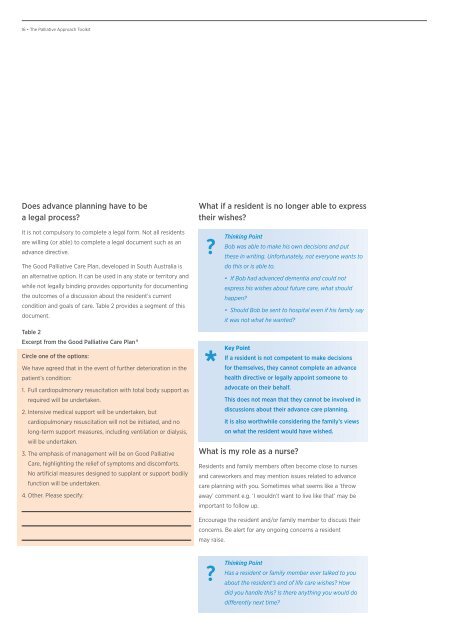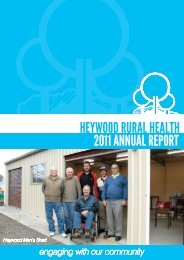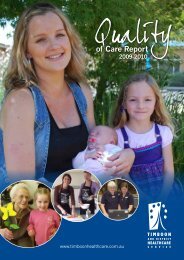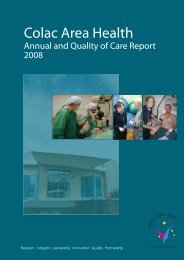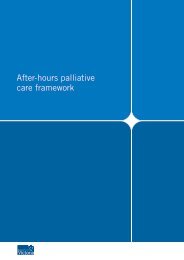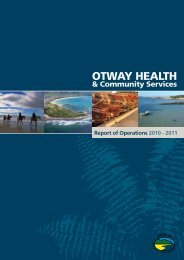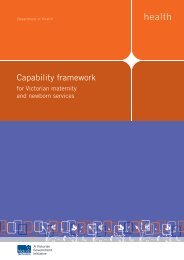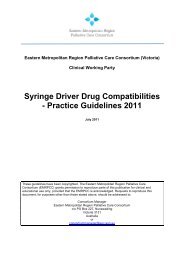Self Directed Learning Package - University of Queensland
Self Directed Learning Package - University of Queensland
Self Directed Learning Package - University of Queensland
- No tags were found...
You also want an ePaper? Increase the reach of your titles
YUMPU automatically turns print PDFs into web optimized ePapers that Google loves.
16 • The Palliative Approach ToolkitDoes advance planning have to bea legal process?It is not compulsory to complete a legal form. Not all residentsare willing (or able) to complete a legal document such as anadvance directive.The Good Palliative Care Plan, developed in South Australia isan alternative option. It can be used in any state or territory andwhile not legally binding provides opportunity for documentingthe outcomes <strong>of</strong> a discussion about the resident’s currentcondition and goals <strong>of</strong> care. Table 2 provides a segment <strong>of</strong> thisdocument.Table 2Excerpt from the Good Palliative Care Plan 9Circle one <strong>of</strong> the options:We have agreed that in the event <strong>of</strong> further deterioration in thepatient’s condition:1. Full cardiopulmonary resuscitation with total body support asrequired will be undertaken.2. Intensive medical support will be undertaken, butcardiopulmonary resuscitation will not be initiated, and nolong-term support measures, including ventilation or dialysis,will be undertaken.3. The emphasis <strong>of</strong> management will be on Good PalliativeCare, highlighting the relief <strong>of</strong> symptoms and discomforts.No artificial measures designed to supplant or support bodilyfunction will be undertaken.4. Other. Please specify:What if a resident is no longer able to expresstheir wishes?Thinking PointBob was able to make his own decisions and putthese in writing. Unfortunately, not everyone wants todo this or is able to.• If Bob had advanced dementia and could notexpress his wishes about future care, what shouldhappen?• Should Bob be sent to hospital even if his family sayit was not what he wanted?Key PointIf a resident is not competent to make decisionsfor themselves, they cannot complete an advancehealth directive or legally appoint someone toadvocate on their behalf.This does not mean that they cannot be involved indiscussions about their advance care planning.it is also worthwhile considering the family’s viewson what the resident would have wished.What is my role as a nurse?Residents and family members <strong>of</strong>ten become close to nursesand careworkers and may mention issues related to advancecare planning with you. Sometimes what seems like a ‘throwaway’ comment e.g. ‘I wouldn’t want to live like that’ may beimportant to follow up.Encourage the resident and/or family member to discuss theirconcerns. Be alert for any ongoing concerns a residentmay raise.Thinking PointHas a resident or family member ever talked to youabout the resident’s end <strong>of</strong> life care wishes? Howdid you handle this? Is there anything you would dodifferently next time?


